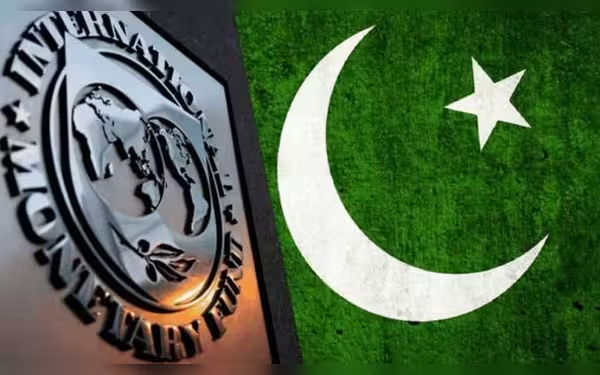Saturday, November 16, 2024 05:36 PM
Pakistan Secures $7 Billion IMF Bailout Amid Economic Challenges
- Pakistan agrees to stringent IMF conditions for bailout.
- Government commits to reducing federal footprint by September.
- Transparency and accountability are crucial for international trust.
 Image Credits: tribune.com.pk
Image Credits: tribune.com.pkPakistan secures a $7 billion IMF bailout, committing to reforms and transparency amid severe economic challenges.
In a significant move to secure a $7 billion bailout from the International Monetary Fund (IMF), the coalition government of Pakistan has agreed to implement a series of stringent measures. This decision comes at a time when the country is grappling with severe economic challenges, and the need for financial assistance has never been more pressing. The IMF, a global financial institution, plays a crucial role in providing support to countries facing economic difficulties, and Pakistan's commitment to reform is essential for unlocking this much-needed funding.
The government has made written commitments to the IMF, which include limiting the powers of the Special Investment Facilitation Council (SIFC) and the Sovereign Wealth Fund. These entities have been pivotal in managing investments and resources, but the IMF has raised concerns about their accountability and transparency. By ensuring greater oversight, the government aims to build trust with international lenders and demonstrate its commitment to responsible governance.
Another critical condition set by the IMF is that Pakistan must provide a detailed report outlining actions to reduce the federal government's footprint by the end of September. This requirement highlights the need for fiscal discipline and a more streamlined government structure. Reducing the size and influence of the federal government is seen as a necessary step towards achieving economic stability and fostering an environment conducive to investment.
As Pakistan navigates these challenging waters, it is essential for the government to not only meet the IMF's conditions but also to communicate effectively with its citizens. Transparency in the decision-making process and the rationale behind these reforms will be vital in gaining public support. The road ahead may be tough, but with determination and a clear vision, Pakistan can emerge stronger from this economic crisis.
While the measures outlined may feel like "40 bitter pills" for the nation, they are necessary for securing financial stability and paving the way for future growth. The commitment to reform is a step in the right direction, and it is crucial for all stakeholders, including the government and the public, to work together towards a more prosperous Pakistan. Only time will tell if these efforts will yield the desired results, but the journey towards recovery has officially begun.













